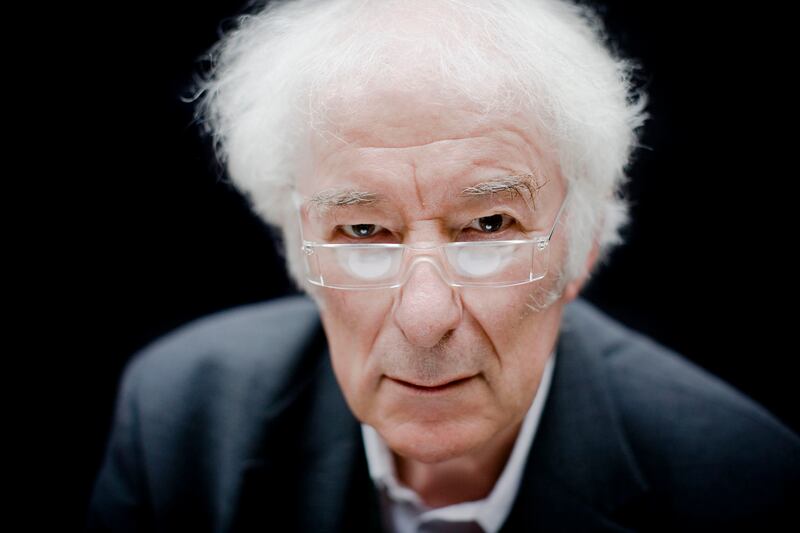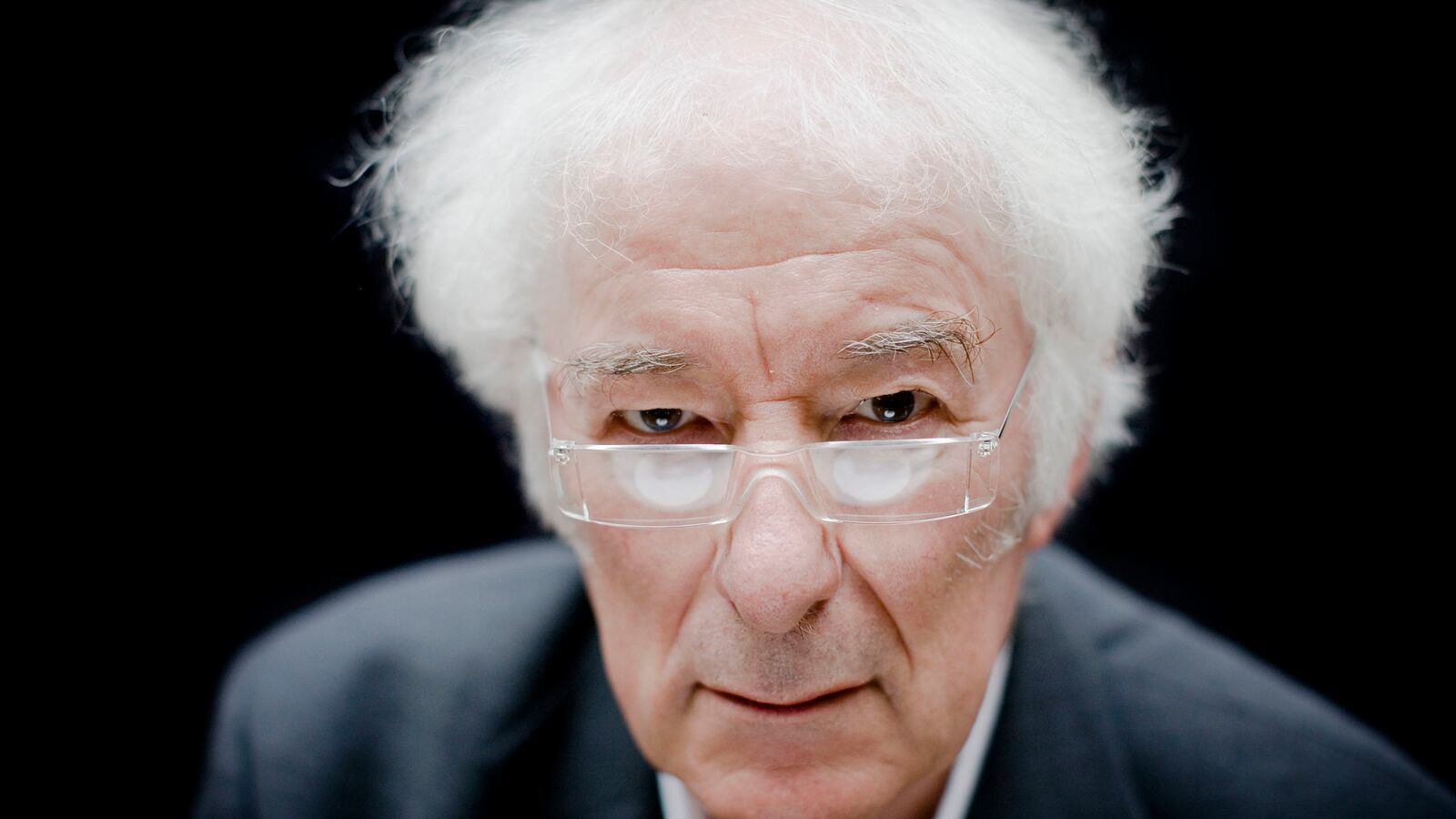The Irish writer Seamus Heaney, who won the Nobel Prize for literature in 1995, was perhaps the most celebrated poet of his generation, in an era when a general reader might have a hard time naming a living poet at all. So well known was he that he was nicknamed Famous Seamus, with his easily recognizable mane of unruly white hair and jolly cheeks that seem to overwhelm his pencil-thin eyes and lips.

Heaney died in a hospital in Dublin on Friday after a short illness. It came as a shock to the world, as few people knew that he was so ill. He was 74.
Heaney’s verse was often charged with being “accessible,” as if poetry was somehow supposed to be unfathomable. The fact that he sold more books in Britain than any other living poet of his time, or that he was perhaps the only writer capable of wringing a bestseller out of a translation of Beowulf, did not help wipe away the image of him as an “easy” poet. It was also a mixed blessing that he was one of U.S. president Bill Clinton’s favorite poets. When Heaney was struck by a near-fatal stroke in 2006, Clinton paid him a visit, and the president even joked that he named his dog Seamus after the poet. In 1995, Clinton quoted Heaney’s play The Cure At Troy during a speech in Londonderry about the Northern Ireland peace process: “When History says, don't hope/ On this side of the grave./ But then, once in a lifetime/ The longed-for tidal wave/ Of justice can rise up,/ And hope and history rhyme.”
It is, of course, no sin that important poetry is also easily quotable. It’s always been, especially for Heaney, who was instantly acclaimed after he published his first collection, Death of a Naturalist, in 1966. Nearly half a century later, fans are celebrating his life by quoting from the first poem of that collection—which is not so much about death (“the squat pen rests”) as it is about declaring his genius and looking ahead to a long lifetime of writing. “Digging” celebrates Heaney’s father and grandfather, who were very good with a shovel. “I’ve no spade to follow men like them./ Between my finger and thumb/ The squat pen rests./ I’ll dig with that.” In all, he published 13 collections of poetry and several more of essays.
In 1982, Heaney accepted a teaching post at Harvard, and stayed there for 14 years, a time when he stepped onto the global stage. In 1995, he received the call from Stockholm, and if his Nobel prize didn’t make him a household name, the 1999 publication of his translation of Beowulf did, when it became a surprise international bestseller. He was the rare poet whose books were bought; most living poets’ works were not so much as even read. Robert Lowell called him the most important Irish poet since William Butler Yeats. His poems dealt with politics, religion, and violent conflict in Northern Ireland, but also with nature and the soul, as if soil and streams helped cleansed the blood on the hands of the British and the Irish Republican Army. In 1982 he objected to being included in a book of British poets, and he was ever loyal to Ireland. Even his mythological references came mostly from Greek and Gaelic legends. Heaney’s work could be approached from many hallways, and however you chose to arrive at it, at the end is a door to a finely detailed, perfectly described world. He wrote about death often, as all great poets do. Let us pay tribute to the death of a great poet with his own words:
And (as some maker gaffs me in the neck)'You weren't the worst. You aspired to a kind.Indifferent, faults-on-both-sides tact.You left us first, and then those books, behind.'
As I age and blank on names,As my uncertainty on stairsIs more and more the light-headednessOf a cabin boy’s first time on the rigging,
“Mid-term Break”
Wearing a poppy bruise on the left temple,He lay in the four foot box as in a cot.No gaudy scars, the bumper knocked him clear.A four foot box, a foot for every year
I missed his funeral,Those quiet walkersAnd sideways talkersShoaling out of his laneTo the respectablePurring of the hearse ...
“Whatever You Say Say Nothing”
Is there a life before death? That’s chalked upIn Ballymurphy. Competence with pain,Coherent miseries, a bite and sup,We hug our little destiny again.
“Requiem for the Croppies”
Terraced thousands died, shaking scythes at cannon.The hillside blushed, soaked in our broken wave.They buried us without shroud or coffinAnd in August ... the barley grew up out of our grave.
Beowulf: A New Translation
It is always betterto avenge dear ones than to indulge in mourning.For every one of us, living in this worldmeans waiting for our end. Let whoever canwin glory before death. When a warrior is gone,that will be his best and only bulwark.






